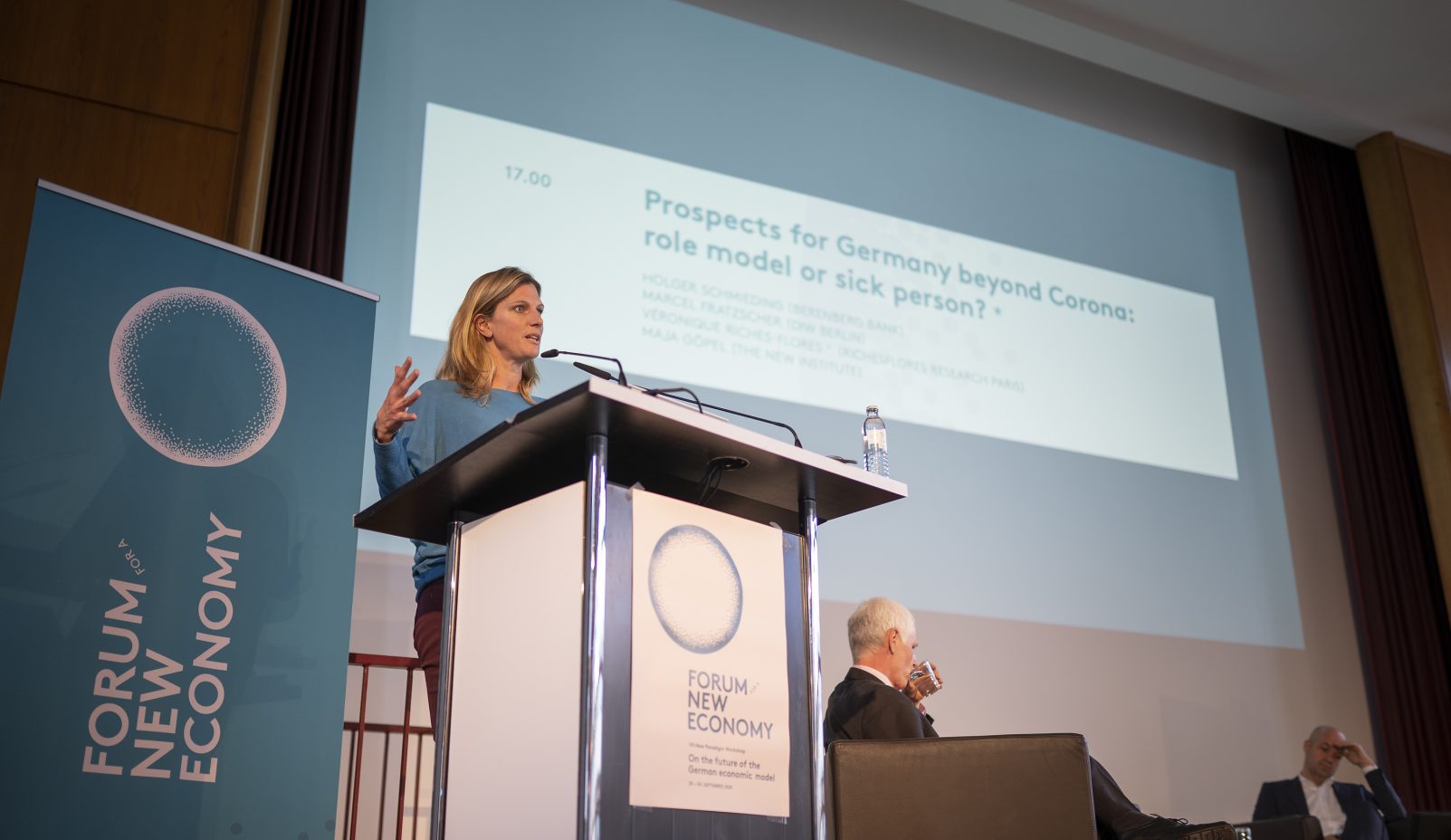






Corona Crisis
CORONA CRISIS
The current Corona crisis is probably the worst economic crisis of the post-World War 2 era. Economists are working hard on mitigating the economic effects caused by COVID-19 to prevent a second Great Depression, the break-up of the Eurozone and the end of globalisation. We collect the most important contributions.
LATEST NEWS
Leopoldina – Corona Pandemic Intensifies Need for Action in German Economic and Social Policy
In their latest statement, scientists analyze the Corona-related economic and social policy situation and outline a possible way out of the crisis.
World Summit for A Systemic Recovery from the Pandemic
What a selection of the world's most renowned economists recommends - short report from an impressive NAEC conference.
World Summit for A Systemic Recovery from the Pandemic
What a selection of the world's most renowned economists recommends - short report from an impressive NAEC conference.
The forgotten history of European Community debt
Sebastian Horn, Josefin Meyer, Christoph Trebesch show that since the 1970s, the European Commission has placed more than a dozen community bonds on private markets, which were guaranteed by the member states and distributed to countries in crisis.
Leopoldina – Corona Pandemic Intensifies Need for Action in German Economic and Social Policy
In their latest statement, scientists analyze the Corona-related economic and social policy situation and outline a possible way out of the crisis.
World Summit for A Systemic Recovery from the Pandemic
What a selection of the world's most renowned economists recommends - short report from an impressive NAEC conference.
World Summit for A Systemic Recovery from the Pandemic
What a selection of the world's most renowned economists recommends - short report from an impressive NAEC conference.
The forgotten history of European Community debt
Sebastian Horn, Josefin Meyer, Christoph Trebesch show that since the 1970s, the European Commission has placed more than a dozen community bonds on private markets, which were guaranteed by the member states and distributed to countries in crisis.
New Economy Working Paper – Change only through crisis?
A new study by Laurie Laybourn-Langton reflects on the strategies for a paradigm shift in an age of coronavirus and environmental breakdown.
New Economy Short Cut with Sebastian Dullien
Sebastian Dullien (IMK) gave an assessment of the impact of the economic stimulus package at the start of our new format "New Economy Short Cuts".
New Economy Short Cut with Kristian Blickle (New York Fed)
Kristian Blickle will present a new version of his working paper "Pandemics Change Cities: Municipal Spending and Voter Extremism in Germany, 1918-1933".
Narratives and Szenarios in the post-Corona world
Does the crisis trigger a transformation process or will everything go back to normal? Hannes Böhm and Valentin Sagvosdkin describe the importance of narratives for the time after the crisis.
Larry Summers talked to NAEC (OECD)
Our cooperation partner NAEC (OECD) invites you to a conversation with former US Treasury Secretary Larry Summers. You can find the recording here.
The way out of the crisis – all news about a possible recovery plan
The German government has decided on an economic stimulus package of 130€ billion. Achim Truger and Michael Hüther evaluated individual measures in advance. Laurence Tubiana and Emmanuel Guerin insist on the importance of the Green Deal for reconstruction.
Corona Workshop Video: Fiscal Policy – Will the Trillions be enough?
Robin Brooks, Frank van Lerven, Antonella Stirati and Shahin Valleé discuss the fiscal capacities of countries hit by the corona virus and lay out what needs to be done next.
Central banks to the rescue? Is this the time for helicopter money?
Corona Workshop: Over the last four decades central banks have been almost exclusively mandated with the task of macroeconomic stabilization. Can they still do their job? We discussed this with Eric Lonergan, Martin Hellwig, Peter Bofinger and Daniela Gabor.











